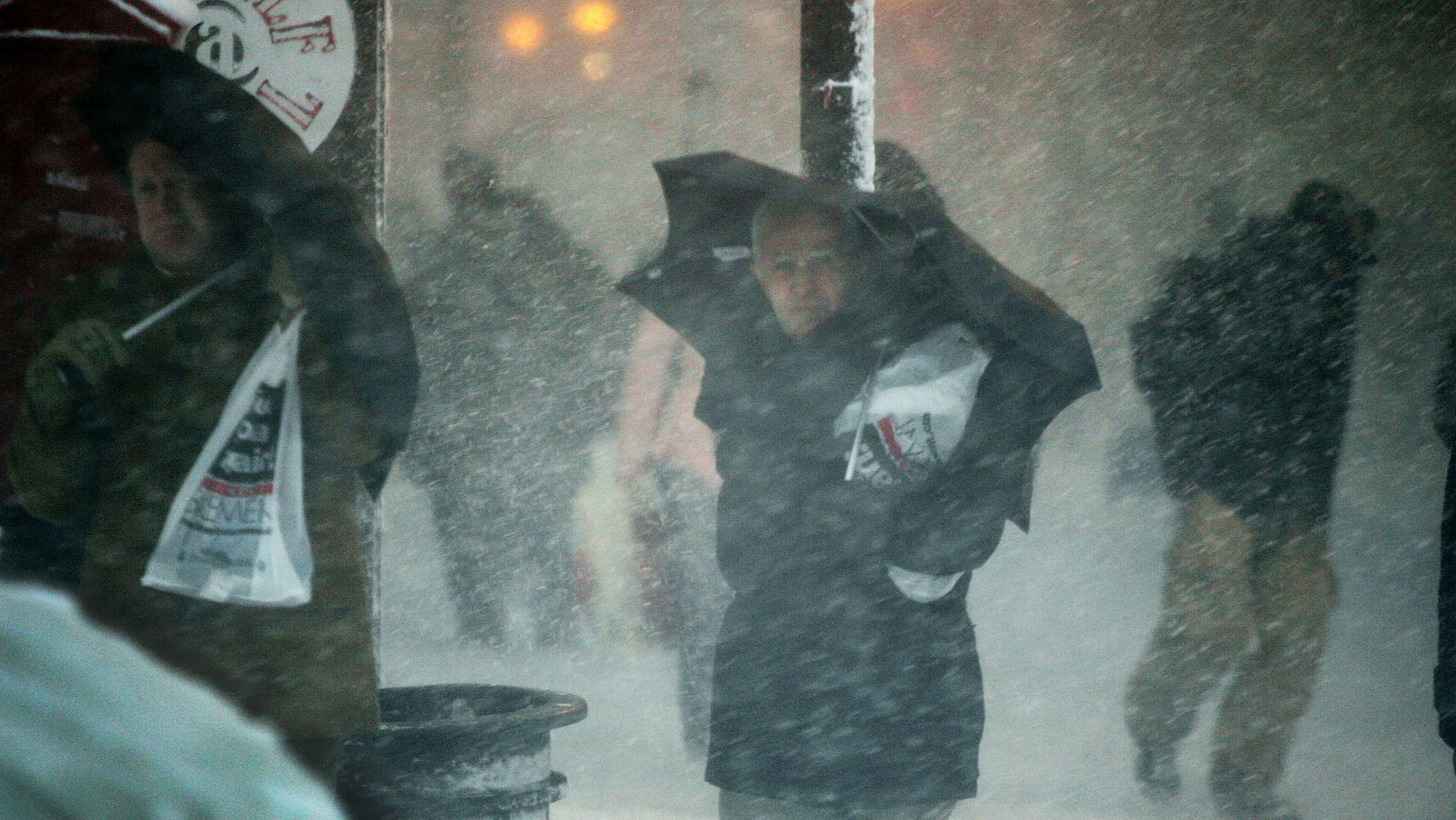What is thundersnow – and is it dangerous?
Forecasters warn extreme cold and winter storms could produce unusual snowfalls over next few days

A free daily email with the biggest news stories of the day – and the best features from TheWeek.com
You are now subscribed
Your newsletter sign-up was successful
Britain is bracing itself for a flurry of wintery storms in the days ahead, including the chance of a "thundersnow".
The unusual weather phenomenon occurs when thunderclouds break in extremely cold weather and the precipitation falls as snow, not rain.
An Arctic blast originating from Canada could see temperatures plummet as low as -8C in parts of the UK this week as storm clouds gather, the perfect condition for thundersnow.
The Week
Escape your echo chamber. Get the facts behind the news, plus analysis from multiple perspectives.

Sign up for The Week's Free Newsletters
From our morning news briefing to a weekly Good News Newsletter, get the best of The Week delivered directly to your inbox.
From our morning news briefing to a weekly Good News Newsletter, get the best of The Week delivered directly to your inbox.
"All that it really needs is for thunder to happen at the same time as the snow," Met Office meteorologist Emma Sharples told The Independent. "It is definitely possible."
Despite its dramatic name, thundersnow poses no more danger than an average snowfall, although it might provide a more impressive spectacle.
"When thundersnow occurs during night time, the lightning appears brighter because it is reflected against the snowflakes," the BBC reports.
More dangerous are the high winds rocking coastal and hilly areas, which have already closed bridges and roads and left hundreds of homes without electricity.
A free daily email with the biggest news stories of the day – and the best features from TheWeek.com
"In Nuneaton, train passengers were stunned when services were delayed after high winds blew a trampoline onto overheard power cables," the Daily Telegraph reports.
The Met Office has issued a yellow "awareness" weather warning for Scotland, Northern Ireland and northern England, which is expected to last at least until the end of the week.
However, the UK is getting off lightly compared to mainland Europe, where temperatures as low as -30C and heavy snowfalls from Romania to Italy have led to power outages, transport shutdowns and at least 61 deaths.
Hypothermia, road accidents or illness linked to the freezing conditions have claimed the lives of at least 20 Poles, eight Italians and two migrants found frozen to death in the mountains by Bulgarian police.
-
 At least 8 dead in California’s deadliest avalanche
At least 8 dead in California’s deadliest avalancheSpeed Read The avalanche near Lake Tahoe was the deadliest in modern California history and the worst in the US since 1981
-
 Political cartoons for February 19
Political cartoons for February 19Cartoons Thursday’s political cartoons include a suspicious package, a piece of the cake, and more
-
 The Gallivant: style and charm steps from Camber Sands
The Gallivant: style and charm steps from Camber SandsThe Week Recommends Nestled behind the dunes, this luxury hotel is a great place to hunker down and get cosy
-
 Home Office worker accused of spiking mistress’s drink with abortion drug
Home Office worker accused of spiking mistress’s drink with abortion drugSpeed Read Darren Burke had failed to convince his girlfriend to terminate pregnancy
-
 In hock to Moscow: exploring Germany’s woeful energy policy
In hock to Moscow: exploring Germany’s woeful energy policySpeed Read Don’t expect Berlin to wean itself off Russian gas any time soon
-
 Were Covid restrictions dropped too soon?
Were Covid restrictions dropped too soon?Speed Read ‘Living with Covid’ is already proving problematic – just look at the travel chaos this week
-
 Inclusive Britain: a new strategy for tackling racism in the UK
Inclusive Britain: a new strategy for tackling racism in the UKSpeed Read Government has revealed action plan setting out 74 steps that ministers will take
-
 Sandy Hook families vs. Remington: a small victory over the gunmakers
Sandy Hook families vs. Remington: a small victory over the gunmakersSpeed Read Last week the families settled a lawsuit for $73m against the manufacturer
-
 Farmers vs. walkers: the battle over ‘Britain’s green and pleasant land’
Farmers vs. walkers: the battle over ‘Britain’s green and pleasant land’Speed Read Updated Countryside Code tells farmers: ‘be nice, say hello, share the space’
-
 Motherhood: why are we putting it off?
Motherhood: why are we putting it off?Speed Read Stats show around 50% of women in England and Wales now don’t have children by 30
-
 Anti-Semitism in America: a case of double standards?
Anti-Semitism in America: a case of double standards?Speed Read Officials were strikingly reluctant to link Texas synagogue attack to anti-Semitism